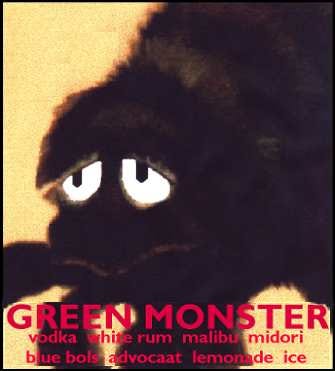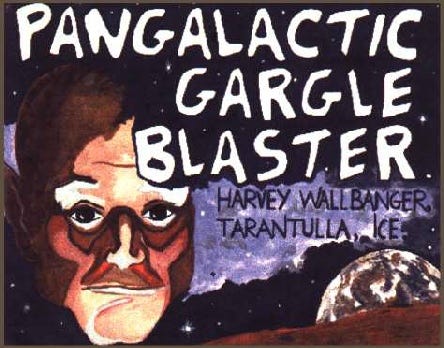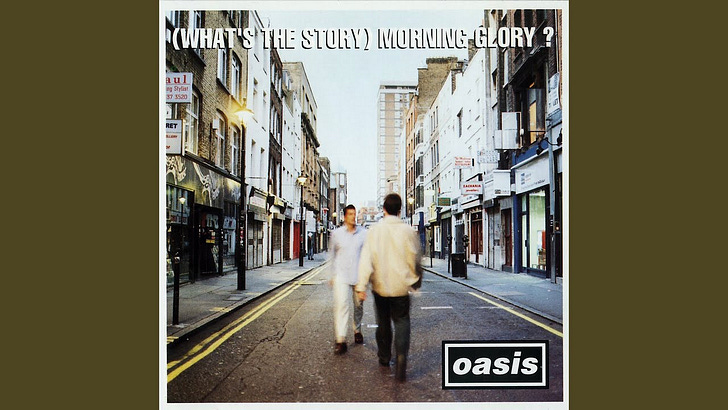Time Travel Is Painful
Oasis: 'Wonderwall' + Cairo to Hull (and back again) + Pangalactic Gargleblasters (on ice)
Youssef Rakha encounters ‘Wonderwall’ on the streets of Cairo, and suddenly it's 1996 again and he’s in England, homesick, friendless and walking in the rain …
Before you start reading, a reminder: Paid subscriptions — $5 per month, $50 per year — are what keep Tracks going.
Paid subscribers get access to special goodies like TRACKS ON TAP, a Spotify/Apple playlist of (almost) every song mentioned in every Tracks piece ever.
If you think a friend might enjoy this premium Tracks experience, you can buy them a gift subscription.
Consider upgrading. And if you already have: thank you!
Time Travel is Painful
I am turning a corner on foot, 47 years old and reconciled to being stuck in Cairo. A donkey blocks my way to the traffic island on the opposite side of the road. Before I go round him — no such thing as a crosswalk in a street like this — a Seventies VW Beetle swishes past. It is evidently fitted with some serious speakers. In that moment the drums come through louder than anything. Riding on a note or two of simulated strings, they lift up the familiar melody, the distinctive, high-strung voice, the trademark manipulated vowels: Back beat the word is on the street that the fire in your heart is out.
When time stops, the late-afternoon birds are singing, I can smell the mangoes on the cart the donkey is tied to, and the humidity is such that walking through the reddish, dust-specked glow feels like wading in lava. Then — swooooosh — I’m transported. It’s happened more and more since my transformation from a sedentary, feral, and antisocial smoker into an active, tame, and antisocial keeper-in-shape (part of becoming a father, I guess). Some detail in a long-forgotten track will put the key in the ignition and — swooooosh. Growing old is all about time travel, music the fastest time machine. I’m only gone for a moment, but the exquisite ache of it is worth more than hours of daydreaming.
I don’t just remember being 19 and a foreign student at Hull University, in England. For the duration of that “Wonderwall”-triggered journey I am 19, lonely and deprived but hopeful that good things are yet to come. I’m still turning a corner on foot, still wading. But the reddish glow has turned blue-black, and instead of dust it’s flecked with the translucent silver mesh of a huge downpour. I’m walking home from campus in the dark, with hardly any vehicles or people in sight.
It was a friendless year. I had an older girlfriend, but she lived many miles away, at the other end of England, and the relationship was failing. Meanwhile, I was being forced to acknowledge the fact that, among the scions of Middle England who were my classmates, I was not deemed cool. Away from the warmth of home, I felt an incredible loneliness that I couldn’t even articulate.
That night, on arriving in the foyer of Cleminson Hall, panting, I bumped into Roger, another first-year student. He was doing politics and, he always joked, drunken studies. He greeted me in the Queen’s English: “Looking a bit wet there, Youssef.”
Why did “Wonderwall” send me back to this particular scene? Maybe I’d heard it at some point that night, probably while having my supper at the university union bar. Maybe not. I must’ve heard the song a thousand times during my time in the UK, but it was so ubiquitous that I have no specific memories of listening to it.
I say maybe
You’re gonna be the one that saves me
And after all
You’re my wonderwall
The place in Hull I went to listen to music was a club called Spiders, full of punks, goths, and emos. Lots of piercings in strange places. They served delicious pint-glass cocktails that made people take their clothes off while dancing. I preferred the Green Monster (vodka, white rum, Malibu, Advocaat, Blue Bols, Midori, and lemonade on ice) to the Pangalactic Gargleblaster (Pernod, splash of Galliano, vodka, blackcurrant, orange, and cider on ice). I never for a moment felt alien or unsafe at Spiders, and I remember it fondly. If I couldn’t be desirable, at least I could dissolve into a space that welcomed outsiders of all kinds.
But they never played Oasis there – only “real music” like Nirvana and The Doors.
Trudging home in the rain that night I was emotionally lost, for sure, but that was normal. I didn’t have illusions about this being a day when anything significant would happen. I didn’t think anyone was going to save me. I just wanted to get laid.
Later that week, back in Cairo (back from time travel), I ended up doing comic impressions of Liam Gallagher’s phrasing for the benefit of my kids. First I drew their attention with a wiggle of my forefinger, dead serious. “I don’t believe that anybody feels the way I do,” I sang. Then I paused, waiting for one or both of them to intone: “aboucha now.” They weren’t interested in what any of it meant, but they were delighted.
What was I doing? Could it be that, by turning an earnest emotional statement from the mid-Nineties into a goofy “baba joke” of the present, I was dealing with the pain of an infinitely more hopeful young man? But time travel is painful, too, because it makes you see just how much you’ve left behind. The disillusioned person I’ve become is so different from that geeky rebel that I can barely recognize him, and “Wonderwall” makes me feel so sorry for him I just want to keel over and cry. ✹
Youssef Rakha is an Egyptian writer of fiction and nonfiction working in Arabic and English. The Dissenters, his first novel written in English, will be published by Graywolf Press in February and is available for pre-order.
I keep a running list of books by or featuring Tracks contributors at Bookshop.org. Whenever you buy a book using a link from a Tracks essay, or from one of my Bookshop lists, I receive a small commission.
Back beat:
I asked Youssef to write this piece after reading his essay “Losing My Religion: A Nineties Mixtape,” where he looks back in more detail on his decision to leave Egypt and head Hull-ward for university. In a very Tracks-ish way, he does this through the lens of the music that populated his life at the time. “Wonderwall” got just a sentence: “Everywhere I went I could hear the Oasis club anthem Wonderwall, and in the part about winding roads and blinding lights, it felt as if Liam Gallagher had made the song specifically to taunt me.” I wanted more!
Spiders:
Since I know you’re wondering: it’s a real club, and it’s still there. Amazing website, too.




amazing stuff here




Utterly floored by that closing paragraph! I am literally weeping. Nothing has hit me that hard for a while.